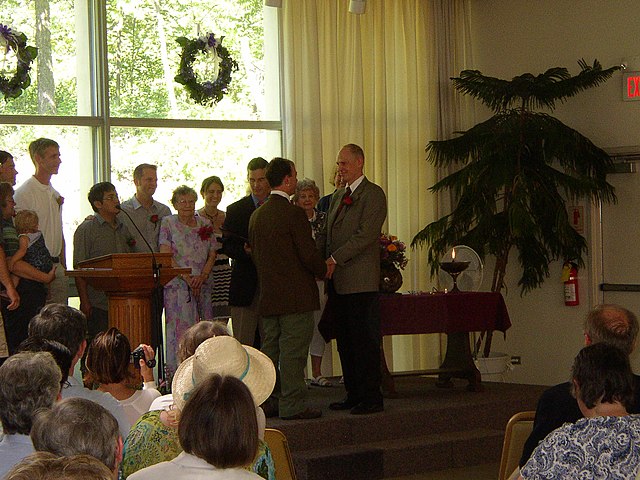Bride price, bride-dowry, bride-wealth, bride service or bride token, is money, property, or other form of wealth paid by a groom or his family to the woman or the family of the woman he will be married to or is just about to marry. Bride dowry is equivalent to dowry paid to the groom in some cultures, or used by the bride to help establish the new household, and dower, which is property settled on the bride herself by the groom at the time of marriage. Some cultures may practice both simultaneously. Many cultures practiced bride dowry prior to existing records.
A Papuan bride dowry basket piece from the early 20th century. In the collection of The Children's Museum of Indianapolis.
Marriage, also called matrimony or wedlock, is a culturally and often legally recognised union between people called spouses. It establishes rights and obligations between them, as well as between them and their children, and between them and their in-laws. It is nearly a cultural universal, but the definition of marriage varies between cultures and religions, and over time. Typically, it is an institution in which interpersonal relationships, usually sexual, are acknowledged or sanctioned. In some cultures, marriage is recommended or considered to be compulsory before pursuing sexual activity. A marriage ceremony is called a wedding, while a private marriage is sometimes called an elopement.
Indian Hindu wedding with the bride and groom in traditional dress.
Chinese immigrant with his three wives and fourteen children, Cairns, 1904
A same-sex couple exchanging wedding vows in a Unitarian Universalist Fellowship
In an 1828 "Wife Wanted" advertisement, an Englishman claiming a "great taste for building" pledges to apply a prospective wife's dowry-like £1000+ to build property that will be "settled on her for life".





